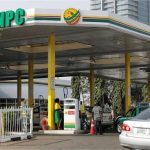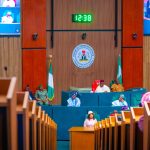The House of Representatives has called for a stricter crackdown on counterfeit and expired drugs in Nigeria, aiming to stop the influx of fake and substandard products that put lives at risk and harm the economy.
This push comes after the recent exposure of an illegal drug manufacturing facility in Abia State’s Osisioma Ngwa Local Government Area, highlighting the urgent need for action.
Nigeria has been grappling with the menace of counterfeit drugs, which has severe health and economic consequences.
The World Health Organization estimates that one in ten medical products circulating in developing nations are substandard, with Africa being a major hub for fake drugs.
The country’s economic downturn has created a fertile ground for counterfeit drugs to thrive, with many Nigerians resorting to cheap, unapproved local drugs and herbal mixtures.
Persecondnews recalls that National Agency for Food and Drug Administration and Control (NAFDAC) announced on Friday, February 14, 2025, the discovery of a large-scale operation trading in expired and falsified drugs at Umumeje village, Osisioma Ngwa, Abia State.
The resolution was moved by Rep. Nnamdi Ezechi, who sounded the alarm on the escalating problem of counterfeit medicines in Nigeria during Tuesday’s plenary session in Abuja.
According to Ezechi, the clandestine factory, situated in a rural village, was engaged in the illicit practice of rebranding expired drugs by falsifying their expiry dates and manufacturing counterfeit medications, including injectables, which were then sold to unsuspecting Nigerians.
He said: “The consumption of fake and substandard drugs poses severe health risks, including treatment failures, drug resistance, and even death.”
He warned that such illicit activities pose a significant threat to Nigeria’s healthcare system, compromising the well-being of millions of citizens and undermining efforts to provide quality healthcare services.
The House expressed deep concern that the Osisioma Ngwa incident was not an isolated case but part of a broader public health crisis, as similar counterfeit drug operations have been uncovered across the country.
The lawmakers noted that the circulation of such harmful products has contributed to Nigeria’s high mortality rate, with citizens unknowingly consuming ineffective or toxic medications.
The House strongly condemned the production and distribution of fake drugs and commended law enforcement agencies for their efforts in uncovering the Abia State operation.
It urged the federal government to direct NAFDAC, the Pharmacists Council of Nigeria(PCN), and other relevant agencies to intensify surveillance, inspections, and crackdowns on fake drug manufacturers and distributors nationwide.
Furthermore, the House directed its Committees on Health and Drugs and Narcotics to conduct a thorough investigation into the pervasive problem of counterfeit drugs in Nigeria.
It also advocated for intensified public awareness campaigns to educate citizens on the risks associated with counterfeit medications, as well as the implementation of cutting-edge tracking and authentication technologies to enable consumers to verify the genuineness of pharmaceutical products prior to purchase.
The House urged the Federal Ministry of Health to work with security agencies to impose harsher penalties on individuals and organizations involved in the illicit drug trade, ensuring offenders are held accountable to the fullest extent of the law.
Persecondnews recalls that on Saturday, February 15, 2025, NAFDAC seized 12 truckloads of illicit pharmaceuticals and sealed over 3,000 shops at the Idumota Open Drug Market in Lagos State.
During the raid, officials discovered egregious breaches, including vaccines stored in rundown, poorly ventilated rooms sealed with iron sheets, which posed significant health hazards.
The raid yielded large quantities of prohibited and hazardous substances, among them Analgin injections, diverted HIV antiretroviral medications, and expired pharmaceuticals intended for illicit revalidation.
Persecondnews also reported that in a significant crackdown, NAFDAC destroyed counterfeit products worth N120 billion across the country from July to December 2024.
























Leave a comment